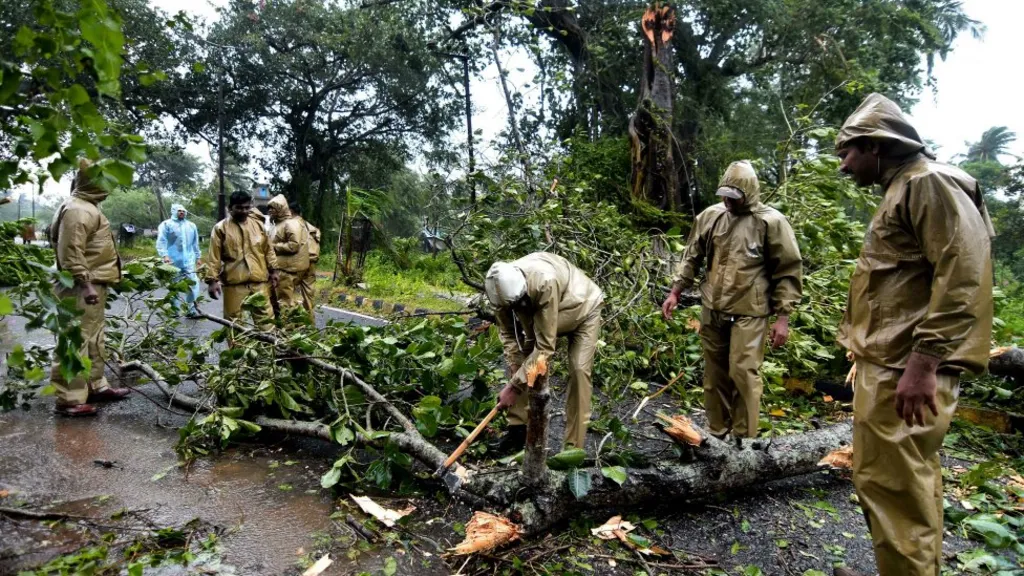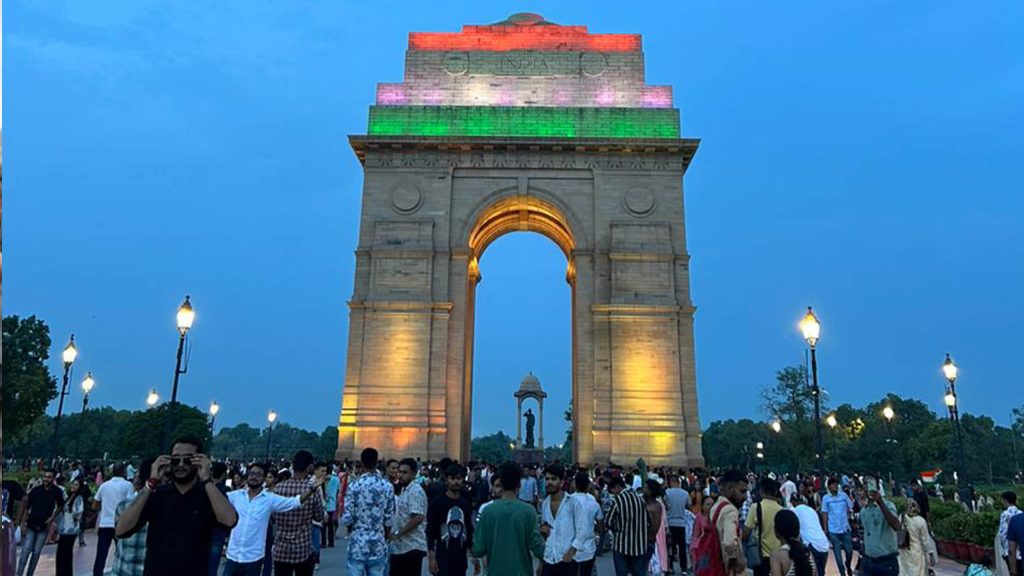2024 is a year of elections. At least 64 nations headed to polls this year, from Indonesia in February to the United States in November. 2024 has also been a year of extreme weather. Countries around the world have seen heatwaves and wildfires, floods and droughts. Yet, surveys repeatedly show that climate change is not a major factor in voting, even in countries most vulnerable to its impacts.
This gap between politics and reality might seem puzzling, even foolish. It’s certainly frustrating for climate activists and policymakers seeking to reduce the world’s dependency on fossil fuels like coal and oil, which release the greenhouse gases that are raising global temperatures and triggering extreme events. But a closer look at these elections reveals a more complicated picture. While economic problems remain top priority for most voters, climate change has become an important issue for young people everywhere. The subject also makes an appearance in party manifestoes, in letter if not in spirit. Most importantly, perhaps, the issue manifests in less obvious ways at the polling booth—it’s just not called ‘climate change’.
Countries at the polls this year include coal-dependent India, the world’s most populous nation, and Indonesia, the fourth-most populous country and the largest exporter of coal. It also includes some of the largest emitters of greenhouse gases, the European Union and the US. The latter two also shape global climate finance.
In general surveys, most people in these and other countries express concern about climate change. A UNDP poll of 1.2 million in 50 countries in 2021 found that although younger people showed the most concern, the generation gap isn’t as large as one might think—69% of respondents under 18 said climate change is a global emergency compared with 58% of those over 60. Another global poll threw up even more surprising results. In a survey of 130,000 people in 125 countries, carried out by Gallup in 2021-22, most people said they would be willing to contribute 1% or less of their income towards climate action. (Interestingly, that proportion was greatest in countries most vulnerable to climate change—78% of people in the least wealthy countries were willing to contribute compared with 62% in the wealthiest countries.) Importantly, around 89% of those surveyed said their government should do more to fight global warming.
But this broad concern about climate change doesn’t seem to extend into election season. In India, for instance, polls have shown that most Indians identify climate change as a potential threat to their country. But pre-election surveys early this year found that jobs and inflation were the most pressing concerns for voters. (Leaders didn’t bring the issue up either, in spite of the fact that elections were held over a scorching summer that saw at least 33 poll workers die of suspected heatstroke.)
Similarly, in the USA, a slight majority of adults say climate change is a major threat to the country and three-quarters support participation in international climate efforts, according to a Pew survey. But when it comes to elections, what tops voters’ list of issues is economy, immigration, and health policy, including abortion laws. Climate change was barely discussed in the recent debate between Democratic candidate Kamala Harris and Republican Donald Trump.
Some countries have even seen an erosion of political wins. Five years ago, Green parties won big in European Parliament elections. But they lost seats in polls held this June, in part due to the energy crisis caused by the Russia-Ukraine war and soaring living costs. That’s allowed other parties to stoke opposition to ambitious environmental plans including a proposed ban on new oil and gas heating systems in Germany, a planned ban on new diesel and petrol car sales in Italy, and a Europe-wide plan to halve the use of pesticides that had farmers up in arms.
The lesson here is simple: communities will always prioritise issues of immediate survival over seemingly distant ones like climate. That’s especially true of developing economies but, as the European elections show, also of richer societies facing turbulence. That’s why a ’just transition’, in which countries ensure employment levels and energy access is maintained while shifting from a fossil fuel-based economy to a renewable-energy-based one, is important. South Africa’s elections are a case in point. President Cyril Ramaphosa of the African National Congress, an advocate of climate action who signed a deal with US, EU and other countries to transition away from coal, returned for a second term this year, but as part of a broader coalition and amid a jobs and electricity crisis that will likely take priority over longer-term climate targets.
A closer look at election campaigns also show that climate and environment issues are often hidden behind other concerns. In India, conflict between humans and animals became an election issue for communities in Kerala facing elephant attacks as well as areas in Uttar Pradesh that saw an upsurge in tiger attacks. Rising ‘man-animal’ conflicts are due to increased fragmentation of forests caused by infrastructure development and urban expansion. This is an environmental issue but also a climate one–forests are important for biodiversity but also safeguard water and sequester carbon emissions.
In Europe, immigration was a big election issue due to the influx of refugees displaced by war and poverty but also natural disasters and declining environmental conditions. (The UN estimates that climate-related disasters triggered more than half of new reported displacements in 2022, though most of this displacement happens within countries.)
These examples tell us that election issues may be linked to climate change even when they are not labelled so. (And indeed, the language of climate can sometimes be counterproductive: one study in the UK found that media use of terms like ‘climate emergency’ or ‘crisis’ instead of ‘climate change’ sometimes had a negative effect on public engagement due to perceptions of credibility or sensationalism.) That insight has been used effectively in the US, where the most important piece of climate legislation is simply titled the Inflation Reduction Act. The act, passed in 2022 under Democratic President Joe Biden, represents the country’s largest investment in renewable energy, and projections to cut greenhouse gas emissions by roughly 40% by 2030.
This law also reminds us why elections matter. In the UK, the Labour Party came to power in July with promises to restart onshore wind energy and renew focus on a just transition. In Mexico’s June elections, people voted in Claudia Sheinbaum, an environmental scientist with a track record in promoting public mobility and solar energy. And in the US, even if Democratic candidate Kamala Harris didn’t say much about climate change in her debate with Republican Donald Trump, there is a stark difference between the two nominees’ position on the issue. Last time Trump was in power, he withdrew from the Paris Agreement, the international treaty on climate change. If Trump wins again, he could boost oil, gas and coal, while potentially derailing wind energy and even electric vehicle production just at the moment when the transition needs to be accelerated, warns environmentalist Bill McKibben. With the US being the second-largest emitter of greenhouse gas emissions and a key driver of climate finance, such decisions would have repercussions far beyond its borders. This election will have consequences.
Earth Shifts, a monthly column on The Migration Story, will analyse the impact of global green goals amid mounting climate uncertainties on lives and livelihoods
Vaishnavi Chandrashekhar is an environment and science journalist based in Mumbai.
















